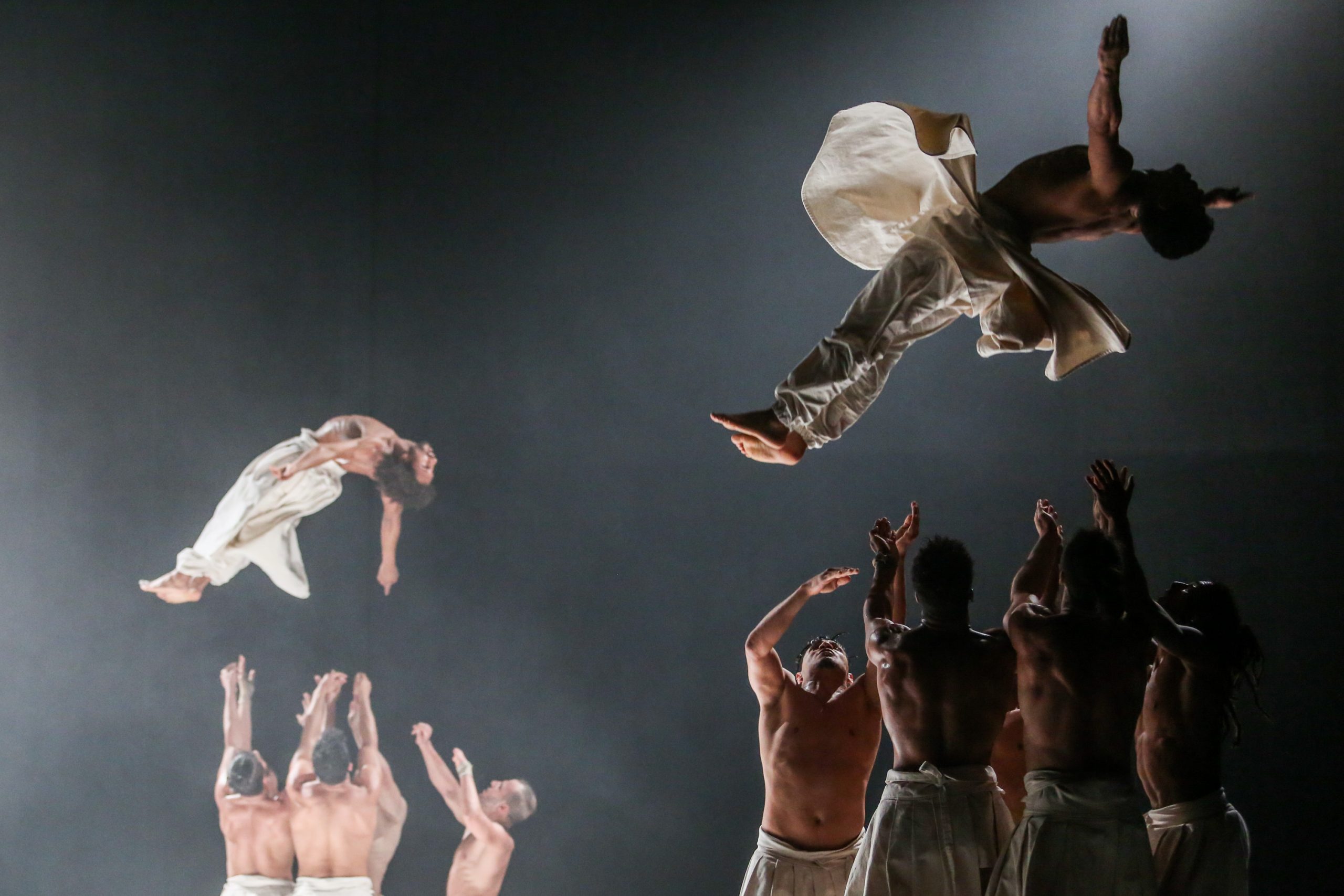Founded by Algerian-French dancer, Hervé Koubi, there is nothing quite like the tableau that dance company Cie Hervé Koubi paints on stage. The Washington Post describes their choreography as “full of explosive acrobatics, executed with the freedom and nonchalance of dolphins in the surf. Human architecture assembled before our eyes, with men balanced atop one another, diving into waiting arms.” With gravity-defying moves and jaw-dropping leaps, Cie Hervé Koubi is set to astound Fort Collins at The Lincoln Center on January 27 with its groundbreaking piece, What the Day Owes the Night.
“All my childhood, before discovering and becoming fully devoted to the art of dance, I was fascinated by drawing,” says Koubi. “Even to this day, I still have this obsession with what I call—in my work—my appetite for constructing gestures and their movement through space.”
For Koubi, creating the choreography is an exercise in bringing together the threads of time and space, making the choreography a complicated weaving comparable to lace.
Like lace, the thread of each member’s talents and dance experience combines to create a complex but ultimately pleasing whole—entwining capoeira, martial arts, acrobatics, riurban and contemporary dance with powerful imagery.
“For this work,” says Koubi, “I wanted to lean on historical elements to find the setting that would inspire the dance forms, gestures, and choreography. The supposed origin of lace is that it came from the East and relied on embroidery. Algeria is not a part of the East, but it is a world of grand artistry and literature that calls up the image of the Orient. So, like that Orientalist from the 19th-century that came to Algeria to give life to their Oriental dreams, I would like to give life to my dreams of being born in France but not discovering until later that the real origins of my parents as ethnic Algerians.“
Koubi has lived his life thinking that he was a pied-noir, a name used for those of European and French ancestry that were born in colonial Algeria. When Algeria won its war for independence, the majority of the pied-noir returned to France or Corsica, though many only had a generational memory of their home country.
Upon Koubi’s father’s deathbed, Koubi discovered that he was not French at all, but ethnically Algerian. Being Algerian in France was akin to second-class status, so his parents hid their heritage from not only their children but their friends and neighbors.
It is only understandable that Koubi would choose the work What the Day Owes the Night to situate his feelings. What the Day Owes the Night is a 2010 novel by famous Algerian writer, Yasmina Khadra. The saga spans from the 1930s to the present day, and tells the story of a young Algerian named Younes who is forced to live with his affluent uncle, a man who was estranged from his family for marrying a pied-noir. Younes struggles through a sprawling backdrop of the Algerian revolt between two worlds: European and Algerian.
“The day constitutes an ideal ‘pretext’, a wonderful transposition of the path I have walked with those traversed by each of the dancers in Algeria, … the day in my history and why not, without appearing too ambitious and even less pretentious, in history. It constitutes an ideal “pretext”, a marvelous transposition of my paths and those traversed by each of the dancers encountered in Algeria, as so many threads mingling and intertwining, so many links also unite us in a history and a geography, that of the great Mediterranean basin. ”
“To celebrate the lace in its refinement, its beauty while attaching itself to a work of memory. This project is at the crossroads of two preoccupations: my appetite for construction and the choreography and a deep need to bring me closer to my origins in the land of Algeria—links to be found, others to be renewed and still others to be built.”
Cie Hervé Koubi will perform What the Day Owes the Night at The Lincoln Center on January 27. Seats from $15 at LCtix.com.
Translation by Alison Baumgartner
